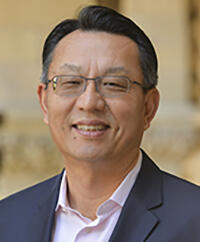UN's Role in Accountability for North Korea Human Rights Violations
To watch the recording of the event, click here.
This is the second event in a three-part series on North Korea Human Rights hosted by APARC's Korea Program in the spring quarter.
Recently, Tomás Ojea Quintana, United Nations Special Rapporteur on the situation of human rights in DPRK, gave his report on the dire situation in North Korea to the UN Human Rights Council. In this public webinar, Mr. Quintana will focus on the issues reported in his latest report. He will be joined by Roberta Cohen, Co-Chair Emeritus of the Committee for Human Rights in North Korea, and Joon Oh, former South Korean Ambassador to the United Nations.
About the presenter:
 Tomas Ojea Quintana, Special Rapporteur on the situation of human rights in the Democratic People's Republic of Korea.
Tomas Ojea Quintana, Special Rapporteur on the situation of human rights in the Democratic People's Republic of Korea.
Discussants:

Cohen has a career spanning the United Nations, State Department, think tanks, NGOs and academia where she has been a specialist in human rights, humanitarian, and refugee issues. While at the Brookings Institution (1994-2016), she co-directed the Project on Internal Displacement, was a Senior Fellow, Senior Adviser to the Representative of the UN Secretary-General on Internally Displaced Persons, and co-winner of the Grawemeyer Award for Ideas Improving World Order. Earlier, she served as a Deputy Assistant Secretary of State for Human Rights in the State Department’s first human rights bureau and as Senior Adviser to US Delegations at the UN General Assembly and Commission on Human Rights. While co-chairing HRNK, she authored articles, provided testimony to Congressional hearings, testified before the UN Commission of Inquiry, and was a member of the Council on Foreign Relations Independent Task Force on U.S. policy toward North Korea. Cohen has an Honorary Doctorate in Law from the University of Bern (Switzerland), an MA with distinction from the Johns Hopkins School of Advanced International Studies, and a BA in History from Barnard College.

Oh is an Eminent Scholar Professor of United Nations studies at Kyung Hee University in Seoul, Korea. He is also the Chair of Save the Children Korea and a board member of Save the Children International. Previously he served as Ambassador and Permanent Representative of the Republic of Korea (South Korea) to the United Nations in New York from 2013 to 2016. During that time, he also served as the 71st President of the Economic and Social Council (ECOSOC) and as President of the Conference of States Parties to the Convention on the Rights of Persons with Disabilities (CRPD) in 2015 and 2016. Ealier, he was Korean Ambassador to Singapore (2010-13) and Deputy Minister for Multilateral and Global Affairs in the Ministry of Foreign Affairs and Trade in Seoul (2008-10). He published his first book in Korean, For Mica, Who Contemplates Life, in 2015. He received a master’s degree in International Policy Studies from Stanford University in 1991.
Gi-Wook Shin, director of Shorenstein Asia-Pacific Research Center and the Korea Program, will moderate the discussion.
This event is made possible through the generous support of the Koret Foundation.
Via Zoom: Register at https://bit.ly/3f2GpgQ















